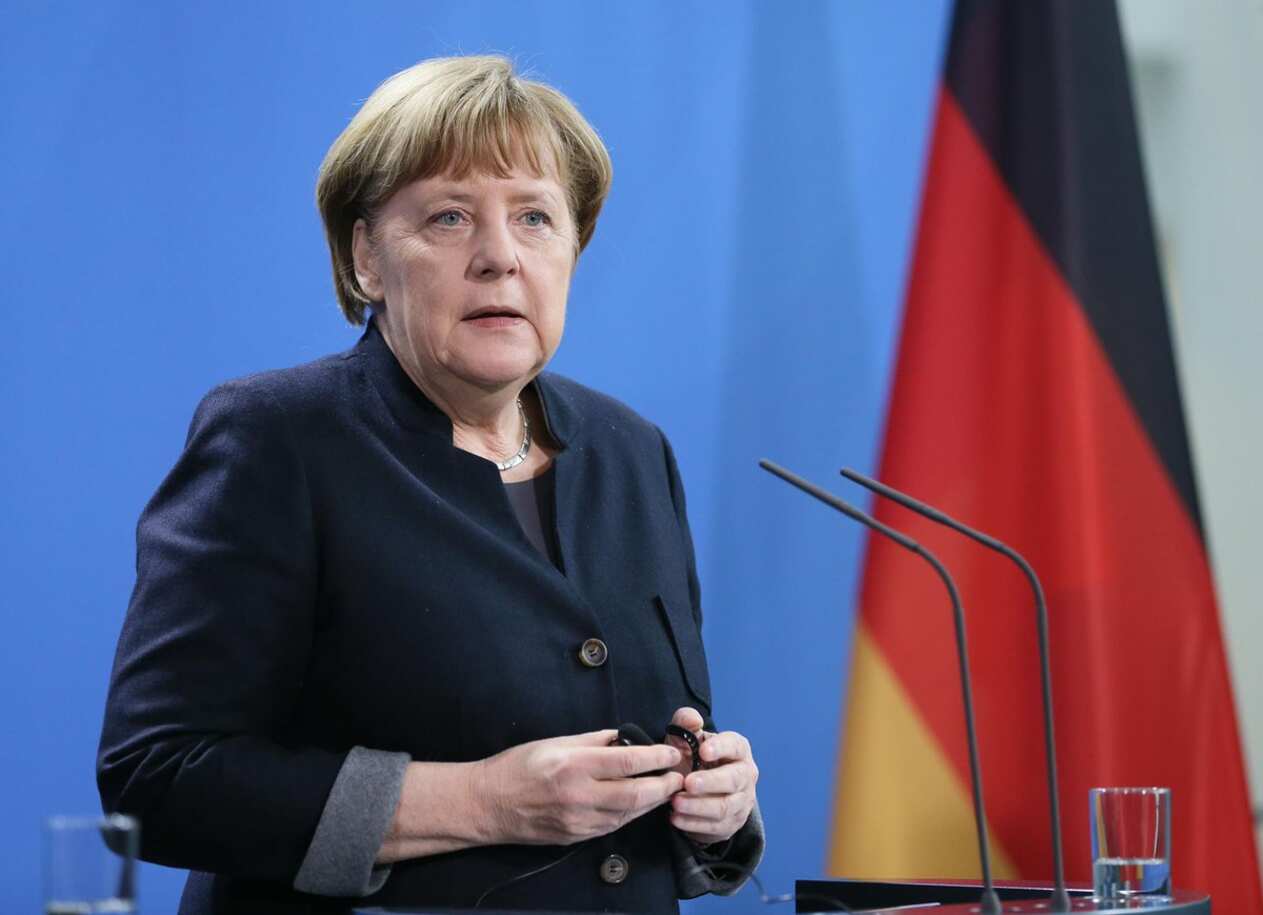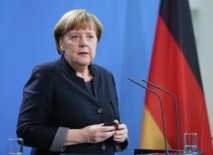"I remember those who were oppressed and had to bury their dreams."
Merkel said November 9 represented the "happiness and unhappiness of moments in history" with the date also echoing some of the dark chapters in Germany's past.
Merkel said November 9, when the Nazis also unleashed a pogrom against Germany's Jewish community in 1938 and was a key date in Hitler's early attempts to grab power in 1923, was also "a reminder that we must stand up to hate, racism and anti-Semitism."
"It reminds us that human rights cannot be taken for granted," said the chancellor, who grew up in the communist east as the daughter of a pastor. She also laid a candle at a memorial for those killed trying to escape the east.
"The contribution of the individual may seem small, but we must not be discouraged by this," she said.
Saturday's events mark the culmination of a week of celebrations and remembrances for November 9, 1989, when East German authorities surprised the world by suddenly opening the hated Berlin Wall following unprecedented mass demonstrations.
But the revelry appeared more reflective and low key than at previous anniversaries, with this year's events across Germany overshadowed by a brittle mood in Europe, in part as a result of the threat posed by the rise of populism.
A surge in anti-Semitic incidents in Germany, including a deadly attack on a synagogue in the eastern city of Halle last month, has also sparked soul-searching about the country's Nazi past and what it means to be German today.
Ceremonies were held on Saturday to mark the horrors of what became known as the Night of Broken Glass, or Kristallnacht, when Jews, Jewish shops, properties and homes were attacked by Nazis on November 9, 1938.
The presidents of Poland, Hungary, the Czech Republic and Slovakia – whose nations helped to pave the way for the breaching of the Berlin Wall by breaking away from Moscow and shifting towards Western-style democracy – also attended Saturday's formal ceremonies.
However, the leaders of Britain, France, Russia and the United States, who had been part of the more ambitious and grander anniversary programme a decade ago, were not present this year.
At Berlin's historic Brandenburg Gate, German President Frank-Walter Steinmeier presided over a pop and classical music concert with tens of thousands of people in attendance.
"Across our country new walls have been created: walls of frustration, walls of anger and hatred, walls of speechlessness and alienation. Walls that are invisible but still divide. Walls that stand in the way of our cohesion. Let's break those walls!" Steinmeier told the audience.
The 2019 celebrations were held following a series of elections that have been marked by the rise of the far-right Alternative for Germany (AfD), which has tried to capitalize on the sense of resentment in parts of the east with life in the years after Communism ended.
The AfD has decried the changes unleashed by the 1989 breaching of the wall as a failure and called for a new uprising in the east.
Built almost overnight in 1961 as what the East German government described as an "anti-fascist protection barrier," the 155-kilometre wall quickly emerged as one of the most striking symbols of the so-called Iron Curtain between the West and the Soviet Union.
The removal of the ugly concrete barrier consequently also represented the end of Germany's Cold War divide, raising hopes about a reunited and more peaceful Europe.
But adding to the subdued mood surrounding this year's anniversary celebrations are a slew of uncertainties facing Europe in the wake of Britain's push to exit the European Union and trans-Atlantic tensions under the presidency of Donald Trump.
At the same time, 30 years after the implosion of communism in Central Europe, the region's new EU members have often emerged as critics of the stance taken by the Brussels-based bloc's western European member states.
-----------------------------------------------------------------------------------------









 Home
Home Politics
Politics











